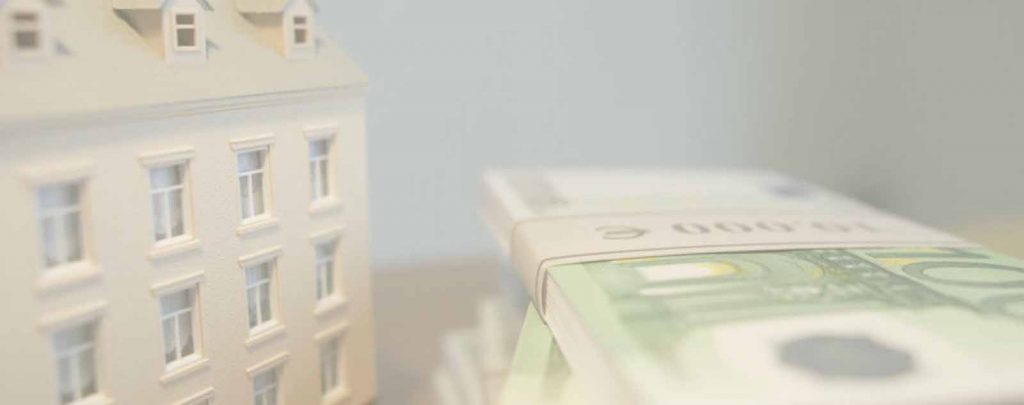What are the municipal capital gains tax and what should you know?
The main issue that we face when we think about buying or selling a home is: who takes charge of the municipal capital gains tax, the buyer or the seller? The Royal Decree of Law 2/2004 (Real Decreto de Ley 2/2004) makes a distinction with different assumptions, to determine who is to bear the payment of the tax, on the increase in the value of land of an urban nature. This municipal tax is direct and optional.
What lands are taxed by municipal capital gains tax?
Only those goods of an urban nature pays for this tax and not therefore the goods of a rustic nature. It only taxes the value of the land, and not the value of the construction.
To take the value of the land, the cadastral value is taken into account with a general nature.
However, the most important non-subject assumptions we find are:
- Contributions of goods and rights made by both spouses, within the conjugal partnership there are awards, that after the payment of this tax, verify the transmissions made in the company between both spouses.
- Real estate transfers between spouses or in favor of their descendants, this is collected as a result of separations, nullities, or divorces, regardless of the matrimonial economic regime.
- Assumptions of absorption or merger of branches of activity or companies, when the exercise of the activities continues.
- Mandatory contributions to city councils, such as urban transfers or awards for reparcelling.

Who pays the municipal capital gains tax?
- When it comes to transmissions for lucrative purposes, such as inheritances or donations, the person in charge of paying this tax will be the person who acquires the property or in its absence, the one that acquires a real right.
- Transmissions for consideration, such as a sale. The person who transmits the property will be the one that takes charge of the payment of the municipal capital gains tax, or the one that acquires a real right.
- The agreements that both parties can agree upon, in reference to the payment of the municipal capital gains tax, do not apply to the tax administration.
- However, if the person obliged to pay the municipal capital gains tax, is a resident abroad. The law establishes that in that case a substitute of the taxpayer, will be in charge of paying the tax, this substitute being a new subject in this legal business.
Exemptions and bonuses of municipal capital gains tax
The most notable exemption is that referring to the transmission of goods that are included in the perimeter delimited as an artistic-historical group, or those goods declared as a good of cultural interest. Provided that their owners prove that they have carried out conservation works, rehabilitation or improvement of the property itself.
Any transfer of assets, whose amount of the resulting settlement is less than € 6, will be exempt from the payment of this municipal capital gains tax, for economic reasons.
Bonuses
The most important bonuses presented by this tax, are those that refer to causes of death, this bonus is optional for the municipality, even reaching 95 % of the full tax rate. However, the formal aspects will be established by the municipality, in the fiscal ordinance.
Another bonus that is applied is established in Law 49/2002 of the tax regime of non-profit entities, applying to the assets subsidized in the IBI.
Elements necessary to determine the amount of the municipal capital gains tax
In order to determine the amount or amount of the tribute for goodwill, it is necessary that we pay attention to the tax base and the tax rate.
Tax base
The tax base of this tax is constituted by the increase in the value of land, evidenced by the accrual and experienced over a period of time not exceeding 20 years. To calculate this tax base, two basic elements will be taken into account, such as the percentage of land increase and the value of this.
- Land value. It is the cadastral value at the moment in which the tax is accrued. In cases of usufruct, the value of the land is substituted with the regulations governing the Transfer Tax and Documented Legal Acts. If we are faced with a case of land expropriation, the value of the fair price will be that taken to calculate the tax base, provided that the cadastral value is lower.
- Percentage increase. This value is calculated by multiplying the number of whole years that have elapsed since the last transmission of the asset, by the coefficient established by the municipality in question. This coefficient can be regulated within the limits established by the local tax laws.
- Tax rate. It is a data that determines the city council, within the fiscal ordinance regulating the tax, however, this can not exceed 30 %.
Calculation of the municipal capital gains tax
To calculate the tax, we will take into account the two previous elements.
The increase in the value of the land is determined objectively.
The tax rate, as we have said, is determined by the municipality.
There is the possibility of differences several tax quotas, such as:
- The entire fee: it is the result of applying the tax rate to the increase in the value of the land that has been calculated objectively.
- Tax liability: it is calculated reducing the amount of the bonuses, the value of the entire installment.
- Net tax amount: in the taxes for municipal capital gain, it is equal to the value of the tax liability, since there is no income, nor fractioned payments, nor withholdings or similar concepts.

Accrual of the municipal capital gains tax
This tax is accrued, in acts Inter vivos (Living persons), just at the moment of the transfer of the property. The most significant and common case is that of the sale, taking as the date of the accrual, that of the deed of the sale itself.
However, in cases of transmission due to death, the accrual does not occur when the subject accepts the inheritance, but, at the time of death of the originator of the transfer of the property.
Declaration of the tribute for municipal capital gain
When the declarations are by inter vivos transmission, the term to be declared the good is of 30 working days (non-holiday days and holidays) from the date of transmission.
The cases of transmission by cause of death, have a term of 6 months, expandable to another 6 more in case it is requested by the interested party.
The extemporaneous declarations (outside the established deadlines) will apply the following surcharges:
- If the filing date of the declaration occurs within three months of the end of the term, a 5 % surcharge will be applied when presenting the declaration.
- If this is done between three and six months after the deadline, the surcharge will be 10 %.
- Between the sixth and twelfth month, the surcharge will be around 15 %.
- After the twelfth month, the surcharge will be 20 %, applying as of month 12 interest for late payment.
- If the payment of the tax debt is finally made within a voluntary period, a reduction of 25 % will be applied to the value of the surcharge.
Who manages this tribute?
The city councils are the places in which the management of this tribute lies. These can delegate this management to a supramunicipal entity, being in this case the deputations, which take charge of this. The deputations would have in this case the function of making the collection documents and assisting the taxpayers, as well as the application of exemptions, bonuses both legal and those that are approved by the municipalities. Finally, the resolution of requests for refund of undue income, or those derived from the regulations of the capital gain tax itself, together with the powers of the General Tax Code (Ley General Tributaria) and the management regulations for the inspection of taxes are also granted to these management entities.
Posted on 9/01/2018